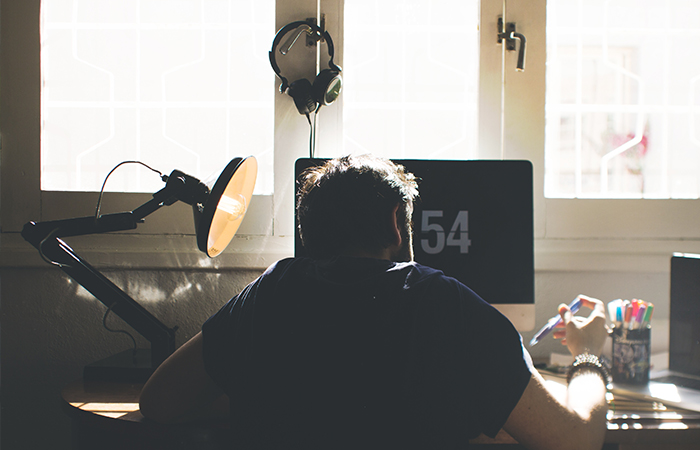
Freelancing is becoming an increasingly popular work option for many people. According to EFIP, 34% of Europe’s workforce are currently freelancers, and the number is growing. By 2020 it is predicted that as much as half of Europe’s workforce will be freelancers. Whilst the numbers vary from country to country, the UK currently has one of the highest proportions of freelancers in its workforce. Bidvine – a platform which connects freelancers with clients – reports that there were a huge 3 million sole proprietorships in the UK in 2018 (check out their awesome Ultimate Guide To UK Freelancing infographic here).
Workspaces must adapt
One effect of the increase in freelancers is the growing demand for flexible workspace. The commercial property market is adapting to the specific needs of freelancers by offering flexible coworking spaces, hot desk options and offices that are designed to inspire, as well as facilitate, networking. Whilst a large proportion of freelancers still work from home, many express frustration around not being able to physically separate work from private life. In addition, as the space you work in affects both your productivity and creativity, working from home can have a negative effect on your ability to focus, as well as lead to isolation and thus lack of innovation.
In order to fully understand what an ideal workspace may look like for a freelancer we called up the graphic designer Wesley Rasines, who has years of freelance experience.
Versatile workspaces key to productivity
Discussing the frustrations one may come across when working from home, Wesley stressed how not having consistent interactions with other people becomes increasingly difficult. ‘Isolation is a big con. When working by yourself it is easier to slip into your own world and some days you won’t have much interaction with clients, so it is just you.’ However, for Wesley this was weighed up by the freedom one has as a freelancer. ‘Having the freedom to work the way I want to is something that I thoroughly enjoy. It means I get to be in charge of my own time and own workflow, adapting it to suit my needs and productivity highs.’

The flexibility that comes with freelancing does not just mean that you can pick when to work and what projects to work on, you can (usually) also control your environment. For Wesley this means being in different locations during different phases of his work. The environment plays a very important role in my work, it helps me get into the right mode. For example, there are times when I want to brainstorm and bounce ideas with someone and other time when I lock myself in a room to focus and be “in the zone”. Additionally, there are times when I just want to relax and let my mind wander.’
Wesley believes that the solution to the above is creating spaces that can cater for different type of phases in the work process. ‘Spaces need to be versatile. They should be able to provide options for interaction, concentration and creation.’ Coworking spaces are often very good at catering for versatility needs. You’ll have hot desk areas where you can be around people, bounce ideas and have your client meetings. Nowadays, many coworking spaces also offer call pods designed not just for calls but also for tasks that require undisturbed concentration. And then you have the break out spaces, often designed to allow for free flow of creativity in a relaxed environment.

Most freelancers still work from home
According to LFS data, 66% of all freelancers in the UK work either full time from home, or have their home as their main workplace. The benefit of this is of course keeping costs down, which may be particularly important when first starting out. But the need to venture outside the home to different spaces is evident even here, as out of the 66% who work from home, more than half still use other spaces to break up the working week. These spaces are often coffee shops, libraries and – especially in urban environments – coworking spaces. It is clear that as the world of work changes, the world of workspace must too, and we’re happy to be part of this journey.
If you are interested in finding workspace in London, use our search platform or get in touch.
